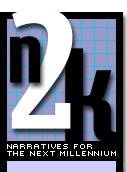

|
Marcel Proust "The advent of modern technology that we see emerging little by
little in In Search of Lost Time is not just part of the color of the times,but part of the work's
very form, of its inner logic, of the author's anxiety to plumb
the multiplicity of the writable within the briefness of life
that consumes it. " Marcel Proust (1871-1922), the prolific French writer is best known for his epic semi-autobiographical novel A la recherche du temps perdu (In Search of Lost Time), which he wrote over the last 12 years of his life. This three volume work is regarded as one of the greatest literary achievements of the twentieth century. Born to bourgeois parents living in Paris, Proust was a big player in Parisian high society until at the age of 35 he became a chronic invalid and spent most of his remaining years in bed writing. He died having completed the manuscript of the last volume of A la recherche du temps perdu which was published several years later after having been edited by his brother. Proust came up with the beginning and the ending of A la recherche du temps perdu when he conceived of the novel, and he then spent the next twelve years filling in the details between the hero's childhood and late-adulthood.The novel can be compared to an encyclopedia, as it is bounded on both sides but contains infinite depth between those boundaries. The narrator of A la recherche du temps perdu (which is written as an interior monologue in the first person) recounts his life which comes back to him through various sensorial experiences. These sensorial experiences (for example the taste of a Madeleine dipped in tea which reminds him of his childhood in the country) lead him to specific memories of his past, and these memories in turn open the flood gates to specific eras of his life which he tries to "recapture" and understand through writing. The concept of Time, infinite on its own, yet finite for man, is of great concern to Proust. He does not simply treat the issue of time as a subject in the text, but uses the anxiety that time provokes as the very basis for the style and structure of his novel. The narrator leads the reader back and forth through time, following a network of his personal experiences, trying to attain a truth. This truth Proust believes can come only through a complete understanding of self. Alexandra Siegler |
|